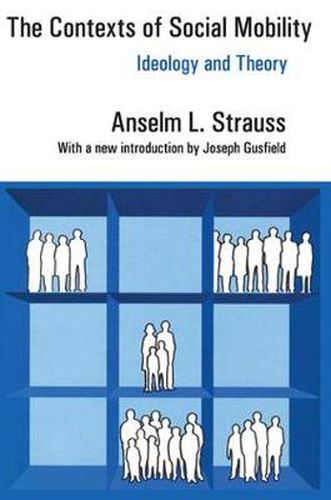Readings Newsletter
Become a Readings Member to make your shopping experience even easier.
Sign in or sign up for free!
You’re not far away from qualifying for FREE standard shipping within Australia
You’ve qualified for FREE standard shipping within Australia
The cart is loading…






This book contains a major statement by one of America’s most preeminent sociologists on what remains an important problem in American history and social analysis: the nature and extent of movement within American society from one status to another. The most important images of mobility involve self-improvement by changing location (going to the frontier, coming to the big city), and by changing social class (second-generation immigrants). Almost all sociological and historical analysis has been limited to these themes. Strauss extends the concept to a wide range of ideologies, institutional contexts, and social movements; his analysis is based on a formal theory of status passage and develops a partial theory of mobility.
$9.00 standard shipping within Australia
FREE standard shipping within Australia for orders over $100.00
Express & International shipping calculated at checkout
This book contains a major statement by one of America’s most preeminent sociologists on what remains an important problem in American history and social analysis: the nature and extent of movement within American society from one status to another. The most important images of mobility involve self-improvement by changing location (going to the frontier, coming to the big city), and by changing social class (second-generation immigrants). Almost all sociological and historical analysis has been limited to these themes. Strauss extends the concept to a wide range of ideologies, institutional contexts, and social movements; his analysis is based on a formal theory of status passage and develops a partial theory of mobility.